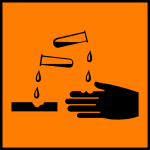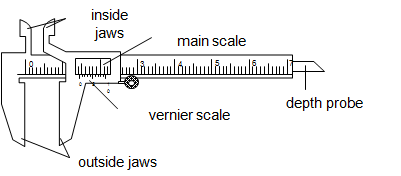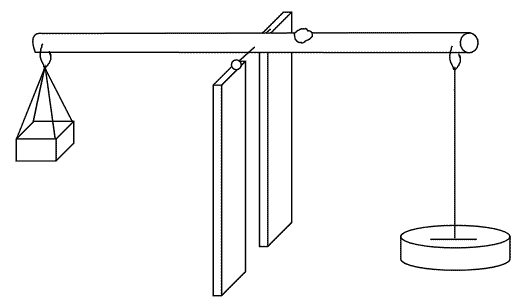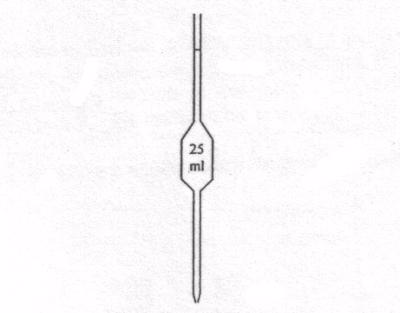FORM ONE PHYSICS STUDY NOTES TOPIC 1-3.
TOPIC 1: INTRODUCTION TO PHYSICS
Physics is often described as the study of matter and energy. It is concerned with how matter and energy relate to each other, and how they affect each other over time and through space. Physicists ask the fundamental questions how did the universe begin? how and of what is it made? how does it change? what rules govern its behavior?
Concepts of Physics
The Concepts of Physics
Explain the concepts of physics
Physics is described as the general scientific study of nature that aims to understand the behavior of the universe. Physics, therefore tries to explain how things happen around us or why they happen the way they do. For example, how a car moves from one point to another? Why unlike poles of magnets attract? Why does a mango fall? How is a rainbow formed? And so on.
Physics as a subject uses concepts like force, energy, mass, power among others to explain different phenomena. Energy, for example, may take the form of motion, light or electricity. In so doing, students of Physics get to learn more about matter and energy and how they interact with each other.
Therefore, Physics is the study of the relationship between matter and energy.
The people who study and work professionally in this field are called physicists.
Physics is an experimental science subject, which creates theories that are tested against observations of the natural world. Theories are used to explain why things behave the way they do. This is why physicists always insist on accurate measurements and a record of results during each experiment.
Once these results are in precise mathematical forms, technologists make use of such data when designing devices such as radios, televisions, mobile phones, computers, and artificial satellites. All these things are for the betterment of human life.
The Relationship between Physics and other Subjects
Establish the relationship between physics and other subjects
Knowledge of physics is also applied in other subjects. The principles of electrostatics and particulate nature, for example, are used to explain reactions in chemistry. The tools, implements and farm machinery learnt in agriculture as well as the process of dating historical remains are applications of physics.
Physics provides the basis for biology. Without space, matter, energy and time -- components that make up the universe -- living organisms would not exist. Physicist Richard Feynman said that everything on earth is made of atoms, basic units of matter, that constantly move. Since biology has its foundation in physics, it applies physical natural laws to the study of living organisms, according to Muskegon Community College. For instance, physics helps explain how bats use sound waves to navigate in the dark and how wings give insects the ability to move through the air. The American Physical Society shares that many flowers arrange their seeds or petals in a Fibonacci-like sequence to maximize exposure to light and nutrients. In some cases, biology helps prove physical laws and theories. Feynman states that biology helped scientists come up with the law of conservation of energy.
Importance of Studying Physics
State the importance of studying physics
Why Study Physics?
- Physics helps us tounderstand how the world around us works, from can openers, light bulbs and cell phones to muscles, lungs and brains; from paints, piccolos and pirouettes to cameras, cars and cathedrals; from earthquakes, tsunamis and hurricanes to quarks, DNA and black holes. From the prosaic . . . to the profound . . . to the poetic. . .
- Physics helps us toorganize the universe.It deals with fundamentals, and helps us tosee the connectionsbetween seemly disparate phenomena.Physics gives us powerful tools to help us toexpress our creativity, to see the world in new ways and then to change it.
- Physics providesquantitative and analytic skillsneeded foranalyzing data and solving problemsin the sciences, engineering and medicine, as well as in economics, finance, management, law and public policy.
- Physics is the basis for most modern technology, and for the tools and instruments used in scientific, engineering and medical research and development. Manufacturing is dominated by physics-based technology.
- Physics helps you to help others.Doctors that don’t understand physics can be dangerous. Medicine without physics technology would be barbaric. Schools without qualified physics teachers cut their students off from a host of well-respected, well paying careers.
Applications of Physics in Real Life
Discoveries in Physics have led to various inventions that influence our lives.
- At home;All tools and machinery that we use in our homes to make work easier are made in accordance with the laws of Physics. They include crowbars, hammers, door handles, cutlery, hinges, car jack, pulleys, tillage implements, and so many other things. For example, it would be difficult for us to try to lift a car so as to change its tyres. However, using a car jack makes this task easy. Electrical appliances such as cooker, iron, heater, electric lamps, washing machine and so on are a result of the application of the knowledge of physics.
- Medical field; A variety of medical processes and machinery rely on the application of the knowledge of Physics. Some of these machines are used in diagnosis and treatment of various ailments as well as sustaining the lives of patients through certain forms of therapy. Examples of machines used in hospitals include laser, x-ray, incubators, ultrasound and infrared machines. The knowledge used in handling and even actual use of these machines is based on the knowledge and skills acquired in Physics.
- Source of energy; Some processes and machines help us to obtain energy for our daily use. These machines make use of various laws of physics to give us different forms of energy. For example, batteries and generators provide electrical energy that is readily used in radios and televisions. A car battery provides energy needed to drive a car. When devices like bulbs are connected to these sources, they provide light energy for daily use.
- Transport; Application of laws of Physics governing concepts such as friction and frictional forces ensures that human beings and animals can walk, run and stop without falling over. Vessels used in transportation such as cars, ships, aeroplanes and trains are also able to move, brake and stop when necessary. This is all because the laws related to friction; flotation and balance are observed and applied accordingly. When these laws are disobeyed, ships sink and trains derail.
- Communication; Devices used in communication systems such as telephones, modems for accessing the internet and television, use cables, telecommunication transmitters and receivers to relay information. The knowledge of Physics is essential, because these instruments make use of fiber optics and radio waves in order to relay messages. Newspapers, letters, electronic mails (email), fax massages from fax machines and short messages (SMS) through mobile phones are reliable means of communication. All these things require the knowledge of Physics.
- Entertainment; Physics enables people to enjoy a variety of leisure activities as is evident in photography, digital appliances, exercise machines and other sport equipment.
- Industry; Physicists have been able to come up with tools and process that have resulted in advanced technological equipment and new discoveries. These include highly accurate skills such as computer assembly and computer programs used in design; and instruments like binoculars and telescopes; the ability to land on the moon and measure the temperature of bodies are a few examples.
- In schools;The instruments and apparatus used in school laboratories are made through the application of the knowledge and skill acquired in a Physics class. These apparatus have to meet certain specifications or standards that are universally accepted.
Physics in Daily Life
Apply physics in daily life
Driving a car requires a basic understanding of the principles of physics, whether the driver is conscious of them or not. For instance, the balance of a car changes as the car accelerates, decelerates or turns. To keep the car on the road, the driver must anticipate these forces acting on the car and make adjustments.
Having an understanding of physics may also help an individual to lift something heavy. For example, by using a simple machine such as an inclined plane or a lever, an individual can make the load easier to lift. Physicists study simple machines extensively and use the lessons they learn to make increasingly efficient tools.
To stay warm in the winter, people up turn the heat up or use the principles of physics to understand how to make better use of the heat that is already in their homes. Heat flows via conductive, radiant and convective means; understanding the differences between the three forms will allow an individual to insulate a house better. For example, by using ceiling fans intelligently, someone can make the convective heat flow in a house work to their advantage.
TOPIC 2: INTRODUCTION TO LABORATORY PRACTICE
A Laboratory is a room or a building designed specifically for carrying out experiments.
Laboratory Rules and Safety Guidelines
Rules in a Physics Laboratory
State rules in physics laboratory
While working in the lab, individuals are advised to adhere to specific lab rules to ensure their safety, that of other people working in the lab and the safety of the apparatus and chemicals stored in the lab.
Rules in the physics lab
- You should only enter the lab in the presence of a lab attendant.
- Keep all exits and entrances to and from the lab clear of obstructions.
- Don’t eat or drink in the lab.
- Solid objects should not be thrown into the sink or water ways.
- Don’t use any lab container for drinking or storing food.
- Make sure that you wash your hands with soap before you leave the lab.
- The cover or stopper of a particular chemical must be replaced immediately after use.
- After experiments, clean your bench and leave it dry and well arranged.
- Never quarrel or fight in the lab.
- Never use ungloved hands to hold hot objects
Safety Measures in the Physics Laboratory
Explain the safety measures in physics laboratory
Safety measures in physics lab
- All experiments which produce poisonous fumes must be conducted in the fume chamber.
- Lab floor should not be polished to avoid slipperiness.
- Lab should have large windows and doors should be opened outwards.
- Ensure that the fire extinguisher is fixed to an appropriate place ready to be accessed in case of fire.
- In a multi storey building, a physics lab should be in the lowest floor.
Using First Aid Kit to Render First Aid
Use the First Aid Kit to render first aid
First aid is the immediate care given to accident victims or an injured person before he/she is taken to the hospital for further medical treatment. It reduces pain and it helps to bring hope and encouragement to accident victims.
A First Aid Kit is a small box which is placed in a safe and accessible place in the lab and is used for the storage of instruments and chemicals for first aid.
Contents of a first aid kit and their uses
| Contents | Uses |
| 1. Pair of scissors | To cut adhesive tapes, bandages and gauze |
| 2. Rolls of adhesive tape | To hold firmly into wounds bandages, gauze and cotton wool |
| 3. Bandages and cotton wool | To clean and cover wounds |
| 4. Sterilised new razor blades | Used when treating new or old wound |
| 5. Sterilised wound | To clean and cover wounds |
| 6. Safety pin | To tighten clip bandages |
| 7. One jar of petroleum jelly | To apply on burns |
| 8. Iodine tincture | To clean fresh cuts and bruises |
| 9. Soap | To wash hands and wounds |
| 10. Antibiotic solution. | To clean wounds |
Warning Signs
Identify warning signs
Warning signs are signs on the containers of chemicals as warnings about the danger of the contained chemical. There are six warning signs.
Explosives
These are substances can explode. An explosion is a forceful rapid reaction which involves the throwing off particles at high speeds.

The sign means that it is dangerous to keep explosives in glass containers.
Oxidant
This is a chemical/substance that helps a burning substance to burn faster.

Oxidising agent makes a small fire to become bigger. Heating a mixture of an organic material with an oxidising agent may cause explosion. Eg; heating potassium permanganate with saw dust.
Flammable
These substances catch fire easily. They should not be kept near open flames. If heated,anelectric heater should be used.

Corrosive
These substances burn skin as well can corrode floors and desktops.

If by accident, a corrosive substance comes into contact with your skin, go to the sink and wash your skin with a lot of water. Examples; Concentrated mineral acids like HCl and HNO3 II. Concentrated alkalis like NaOH and KOH
Toxic
These are very poisonous and can cause death immediately after use or after a few days. They should not be allowed to come into contact with you.

-If you come into contact with such a chemical accidentally, wash it away with a lot of water.
Harmful/irritant
Harmful - these substances may cause illness or endanger your health. They won’t kill instantly but they are lethal. Irritating substances- cause pain in eyes or on your skin and can endanger your health if you are in contact with them doe too long.

They should be handled according to the stipulated instructions.
Warning Signs in Daily Life
Use warning signs in daily life
Activity 1
Use warning signs in daily life
Basic Principles of Science Investigation
The Concept of Scientific Investigation
Explain the concept of scientific investigation
Scientific investigation refers to the step-by-step procedures and methods employed in carrying out a scientific research.
Steps of Scientific Investigation
Identify the steps of scientific investigation
There are six different scientific step:
- Identification of a problem:This is the first step where a problem is recognised. It provides explanations to the day-to-day questions which we come across in our lives Eg; It is observed that despite adequate feeding, vaccination, treatment and spacious rooms, hens lay fewer eggs each day. What is the cause of the fewer number of eggs?
- Formulation of hypothesis: Hypothesis is an intelligent guess or a tentative explanation for the observation made. Using the example of a few eggs laid by hens per day the hypothesis could be; a smaller number of eggs are laid because of unusual high temperature in the room. In order to prove this hypothesis, an experiment have to be carried out.
- Experimentation: The experimentinvolvesa series of investigations intended to discover relationships or certain facts that may lead to the acceptance, rejection or modification of a hypothesis. The first step in experiment is to construct a plan of investigation.
- Observation and data recording:After setting up the experiment, a researcher makes careful observation using their sense organs and records all events that considers relevant.
- Interpretation of data:Once a researcher has collected data, he should try to explain the meaning of the experiment. This is an attempt to interpret the data. The data may be presented in a form of a table, bar chart, histogram or even graph.
- Conclusion:This is either confirmation or rejection of hypothesis.
A Theory is a set scientific assumptions consistent with one another and supported by evidence but not fully proved (is a hypothesis with more evidence).
Fact is a proved theory supported by evidence
Hypothesis →Theory →Fact
Scientifc Investigation Methods in Solving Problems
Use the scientific investigation methods in solving problems
Activity 2
Use the scientific investigation methods in solving problems
TOPIC 3: MEASUREMENT
Concepts of Measurement
The Concepts of Measurement
Explain the concepts of measurement
Measurement is the process of assigning numbers to observations or events.
Importance of Measurement in Real Life
State the importance of measurement in real life
Measurements are so often taken for granted, we sometimes do not appreciate the grand importance measurements play in our lives. On a baseline level, measurements fall into the categories of weight, area, volume, length and even temperature. While we look at these various categories as stoic forms of mathematical measurements, a closer examination of things we do in everyday life reveals their clear importance.
Taking proper medicine. If you are ill (whether a serious or minor illness) you need to take your medicine and take it in the proper amount. If you take too little or too much then you are not going to get the proper benefit from it.
Cooking properly. Cooking of all forms is based on proper attention to measurement. Can you bake a chicken at 600 degrees? Well, you can but the results would be pretty catastrophic! Could you may a cup of tea by dipping a tea bag into a teaspoon of warm water?
Purchasing clothes. Now, how important could measurements be when selecting clothes? After all, to look good in clothing the main thing you need to pay attention to is style, right? Well, if you weigh 200lbs you aren't going to look stylish in an extra small shirt. Clothing is all based on size and proper fitting which are, of course, variants of measurement.
Playing sports. The importance of measurements may not necessarily reveal itself when you play sports but it is there in a big way. If you want to throw a runner out at first or make a 30 yard touchdown pass then you really need to be accurate and comes from a clear sense of depth and distance.
Making estimations. If you have to be at school at 9am what time would you have to leave in the morning if you are at your friend's house. Often we do not have an exact answer so we need to make an estimation which is essentially a guess of measurement.
Keeping yourself warm or cool. If the temperature outside dips or increases you have to make an adjustment on your thermostat in order to remain at a safe and healthy temperature. Understanding the measurement scale of a thermostat is critical in this regard or else you may find yourself feeling rather uncomfortable.
Understanding weight. Is that object too heavy to pick up by yourself or do you need to use something to lift it? Some may think this is not important but it is pretty easy to hurt yourself if you lift objects that are too heavy.
Proper use of capacity. Just how many clothes can you fit in a dresser or closet without it becoming too crammed? Without a clear concept of capacity you might find yourself pouring an entire half gallon of orange juice into a small glass!
Telling time. The ability to tell time is all based on measurement principles. Whether you are using a digital clock or an hourglass these devices measure the passage of time. Now, imagine how chaotic the world would be if if was impossible to measure the passage of time.
Transportation. How much weight is too much for a plane to take off or a car to move efficiently? How much fuel is needed to reach a certain point and how long will it take to get somewhere? Yes, measurements play a significant part in transportation.
Structure. This was saved for last because it is the common theme that is found in all the multitude of reasons for the importance of measurements. Measurements provide structure and remove the chaos that would result without any congruent method of understanding weight, mass, temperature, etc.
Basic Fundamental Quantities
A Fundamental Quantity
Define a fundamental quantity
Physical quantity:Is any character which can be measured by an instrument.
A Unitis the standard which is used to explain measurement of a body.Eg; kilogram, metre, second etc.
Fundamental quantitiesare numbers that we need to describe the world around us, which we cannot express in terms of "simpler," more basicquantities. Here is an example: My weight is not afundamental quantity, because it depends on how much stuff makes up my body.
Three Basic Fundamental Quantities of Measurement
Mention three basic fundamental quantities of measurement
Basic fundamental quantitiesare physical quantities from which other physical quantities are derived from. This includes three quantities namely mass, length and time.
The S.I Unit of Fundamental Quantity
State the S.I unit of fundamental quantities
SI unit (International system of units): Is the system of units which is used internationally to measure three basic physical quantities.
SI units of fundamental quantities
| Basic physical quantity | SI unit |
| Mass | Kilogram (kg) |
| Length | Meter (m) |
| Time | Second(s |
Metric system
Is an international system which is a decimal based system, consequently, conversions from one unit to another within the metric system can accomplished by multiplying or dividing by ten or power of ten.
Note: With the exception of temperature, amount of substance and luminous intensity international other units of measurement that are smaller or larger than the most commonly used units are expressed by attaching a prefix to the most commonly used units.
More than 1 unit
- Giga(G) = 1,000,000,000 (10ˆ9)
- Mega(M) = 1,000,000 (10ˆ6)
- Kilo(K) = 1,000(10ˆ3)
- Hector (h) = 100(10ˆ2)
- Decca(da) = 10(10ˆ1)1
Less than 1 unit
- Deci (d) = 1/10 (10ˆ-1)
- Cent (c) = 1/100(10ˆ-2)
- Mill (m) = 1/1000 (10ˆ-3)
- Micro(μ) = 1/1,000,000(10ˆ-6)
Appropriate Instruments for Measuring Fundamental Quantities
Use appropriate instruments for measuring fundamental quantities
Length, l
Length is the distance between two points, objects or space.The SI unit of length is meter(m). Other commonly used units are kilometer(km) and centimeter(cm).
1km = 1000m
1m = 100cm
The instrument used to measure length is the metre rule.
How to read the metre rule:Owing to the thickness of the wood,the eye must always be placed vertically above the mark being read, in order to avoid errors due to parallax.
Measuring of length (diameter) of small objects.
The diameter of small objects is measured by using two instruments:
- Vernier caliper
- Micrometer screw gauge
A venier caliper is the instrument used to measure length to the accuracy of 0.01cm.It is used to measure lengths to the range of 1.0cm to about 12.0cm.The figure below describe the structure of vernier caliper.

The main scale is graduated in centimeter (cm) while the vernier scale is graduated in millimeter (mm).The vernier scale is a short scale 9mm long divided into 10 equal parts, so that the difference in length between a vernier division and the main scale division is 0.1mm or 0.01cm.
The inside jaws are used to measure the inside diameter while the outside jaws are used to measure outside diameter.The vernier slides over the main scale.
How to read
- The main scale reading is recorded. This is the reading which precedes the zero mark of the vernier scale.
- The vernier scale reading is recorded by reading the mark on it which coincide with a mark on the main scale (i.e. vernier scale reading x 0.01cm).
- The summation of these two readings is the length of the object measured.
A micrometer screw gauge:Is an instrument used to measure length to the accuracy of 0.001cm(0.01mm).It is used to measure the diameters of wires and ball bearings. It can measure small lengths up to about 2.5cm.The diagram below describes the micrometer screw gauge.
It consists of a spindle which is fitted with a graduated thimble. The screwed portion of a spindle is totally enclosed to protect it from damage.The pitch of the screw is 0.5mm, so that the spindle moves through o.o5cm for each complete turn.
The anvil and the spindle grip the measured object between them. The ratchet prevents the user from using undue pressure. The sleeve is graduated in mm, each graduation represent one complete turn of the screw.
How to read a micrometer screw gauge:
- Sleeve reading is recorded. This gives the units and the first two decimal places in mm.
- Thimble reading is then recorded. This gives the third decimal place (thimble reading x 0.001mm).
- The summation of these two readings gives the diameter of the object under measurement.
Precautions when using a micrometer screw gauge.
- Before use,the faces of anvil and spindle should be wiped clean to remove any dirty particle which would give false readings.
- Check and record for zero error then + or –the correction to the final answer.
Mass
Mass of a body is the amount of matter it contains. The SI unit of mass is kilogram(kg). Other commonly used units are gram(g) and tones(t).
1kg = 1000g
1t = 1000kg
The mass of a body doesn’t change from place to place. The instrument used to measure mass is called abeam balance.

Difference between mass and weight:
| Mass | Weight |
| Is the amount of matter contained | Is the force by which the earth pull a body to its centre |
| SI unit is kilogram | SI unit is Newton |
| Doesn’t vary from place to place on the earth’s surface | Varies from place to place on the earth’s surface |
| Measured by beam balance | Measured by a spring balance |
Time
Is the gap between two occasions or events.The SI unit of time second(s). Other units used are minutes (min), hour(h),day etc.
1min = 60s
1h = 3600s
1day = 86400s
The instruments for measuring time are clocks and watches.

Derived quantities
Derived Quantities
Explain derived quantities
Derived quantities are units which are derived from the fundamental quantities. Examples are volume, density, power, work, energy, weight, frequency etc.
The S.I Units of Derived Quantities
State the S.I. units of derived quantities
SI units of Derived quantities
| Volume | Cubic meter (mˆ3) |
| Density | Kg/mˆ3 |
| Power | Watts (W) |
| Work | Joules (J) |
| Energy | Joules (J) |
| Weight | Newton (N) |
| Frequency | Hertz (Hz) |
Basic Apparatus/equipment's and their uses
Basic Apparatus/Equipments Used for Measurement
Describe basic apparatus/equipments used for measurement
Volume
Volume is the amount of space occupied by a substance. The SI unit is cubic meter (mˆ3).Other units used are cubic centimetre (cmˆ3) and litre(l).
Instruments used to measure the volume of liquids:
Measuring cylinder-used for measuring or pouring out various liquids.

Measuring flask and pipette are used for getting fixed pre-determined volume.

Flask

Pipette
Burette-used to deliver any required volume up to its total capacity.

How to read volume measuring instruments(precautions).
Readings are always taken at the level of the bottom of the meniscus or curved surface of the liquid. Mercury is an exception as its meniscus curves downwards.
Care should be taken to place the eye correctly to avoid parallax errors. When taking readings, the pipette and burette must be upright and the cylinder and flask must stand on a horizontal bench otherwise errors may arise from tilting.
Measuring volume of irregular objects.
The volume of an irregular solid can be determined by measuring the volume of water displaced in a measuring cylinder directly or with the aid of an overflow eureka can.
Activity 1
Experiment
Aim: To measure the volume of an irregular object.
Methods
By using a measuring cylinder directly
Materials and apparatus: Irregular object eg; stone, thread, measuring cylinder, eureka can and water.
Procedures
- Poor a known volume of water in a burette(V1)
- Tie a stone with a thread.
- Immerse the tied stone in water holding the thread and record the volume (V2)
- Make sure the stone is totally immersed in water.
Results
- Volume before introducing solid = V1
- Volume after introducing solid = V2
- Volume of irregular solid(V3) = V2 – V1
By using the eureka can
Procedureto follow:
- Poor water into eureka can up to its spout
- Immerse a well tied stone in water completely
- Collect the overflowed water in the water.
- Use a measuring cylinder to determine the volume of water collected
Observation
- When a stone was introduced in an overflow can, water overflowed to the measuring cylinder.
- The volume of water collected is equal to the volume of irregular object(stone)
Sources of Errors in Measurement
Identify sources of errors in measurement
Error is the difference between the measured value and the real or actual value (The difference in reading is known as the error).
There are two types of errors, namely:
- Systematic errors
- Random errors
Systematic errors
Systematic errors results in the measurement or reading being consistently over the actual value OR consistently smaller than the actual value.
Sources of systematic errors.
- Zero error: Zero Error is caused if the reading shown is Not zero when the true value is actually zero. This is most probably caused by a flaw in the instrument for example when using a ruler that has lost its zero scale due to wear and tear hence causing an error in the measurement of length.
- Wrong assumptions: For example if you assume that water boils at 100 degree Celsius but actually its boiling point is higher if there are impurities in it. (Pure water boils at 100 degree Celsius).
- Lag of reaction time: For example in a sports day, when measuring a 100 m running time using a stopwatch. The observer may not press the stop button exactly when the foot of the runner touches the finishing line.
- Calibration errors: Instruments that are not properly calibrated could also cause error and this has to be put in consideration when writing a report or when there is an anomaly in reading.
Random errors.
Random error is caused by the observer who reads the measuring instrument. Just like the systematic error, there is also positive or negative error. Positive error is when the reading is bigger than the real value and negative error is when the reading is smaller than the real value.
Ways of reducing errors
- Taking several readings and then find the average.
- Avoiding parallax error by positioning the instrument (meter rule) properly on the table with the eyes perpendicular to the scale.
- Some instruments can be adjusted to eliminate zero error. For example when using an ammeter, there is an adjuster to set the indicator to zero before making any measurement.
- In the case of a ruler, measurement can be carried out starting from the next clear scale for example if scale 0.0cm is blurred, we can start measuring the length from 2.0cm, of course taking the difference of value in consideration when recording the final reading.
Density and Relative Density
The Concept of Density of a Substance and its S.I Unit
Explain the concept of density of a substance and its S.I unit
The Density of a substance is its mass per unit volume.
The unit of density is kg/mˆ3. Other unit used is g/cmˆ3.Density of regular solid object can easily be found by direct and easy measurements.-It involves measuring the mass and calculating the volume as described in the experiment below.
The Density of Regular and Irregular Solids
Determine the density of regular and irregular solids
Activity 2
Experiment
Aim;To measure the density of rectangular block.
Material and Apparatus :Ruler, beam balance and rectangular block.
Procedures:Using a beam balance measure mass of the block, m.Measure its length, width and height.
Results
- The mass of the rectangular block is m.
- The volume of the rectangular block will be calculated by multiplying the obtained length, l height, h and width, w.
- Volume, V = l x h x w, But; Density = mass/volume
- The volume of a material can be obtained by using various methods depending on the shape of the material
Activity 3
Experiment.
Aim; To determine density of irregular solid.
Materials and apparatus:Irregular solid like stone, measuring cylinder, beam balance and water.
Procedures
- Obtain the mass of the given object using the beam balance.
- Fill water to the measuring cylinder to the volume V₁.
- Immerse the well tied irregular object totally in the cylinder containing water.
- Record the new volume V₂.
Results
- Volume of irregular object = V₂ - V₁
- Mass obtained = M

The Density of a Liquid
Determine the density of a liquid
Density of liquids can be determined by using a burrete or a density.
Activity 4
Experiment.
Aim: To determine density of liquids using a burette.
Materials and apparatus: Burette, beaker, beam balance and kerosene.
Procedures
- Record the mass of the empty beaker m₁ using a beam balance.
- Pour the known volume of kerosene into the beaker by using bur rete, V.
- Record the mass of the beaker and kerosene m₂.
Results

Definition of the Relative Density of a Substance
Define the relative density of a substance
The Relative density of a substance is the ratio of its density to the density of water.The density of water has the density of approximately 1.0g/cm³ or 1000kg/m³.

Note:Since the density of pure water is 1g/cm³, the RD of a substance will be represented by the same number as its density in g/cm³.RD has no units as its ratio of same quantities.
Applications of Density and Relative Density in Real Life
Interpret applications of density and relative density in real life
Application of RD in real life.
- It is the key factor which is considered during the design of various structures and equipment. Eg. ships and planes.
- Density is considered during the selection of materials.
- Density is also considered during the design of equipment used in swimming.






